- Home
- Thomas H. Cook
Into the Web Page 3
Into the Web Read online
Page 3
“Take a shotgun,” he said, returning his attention to Lonnie. “Nothing stops a man like a shotgun.”
Chapter Three
Waylord was a whorl of hills and gaps that lay in the far northeastern corner of Kingdom County. As a boy, I’d known it only as a remote and mysterious place where there was no electricity, no phones, no radios, nor much of anything else that couldn’t have been found in the same houses a hundred years before. The people who lived there drew water from wells, cooked on wood-stoves, washed their clothes in the same metal tubs they used to bathe their children and themselves. In summer the women wore broad, bright-colored bonnets to shield their faces from the sun, tended their gardens in dresses made from feed sacks or bolts of cloth chosen from mail order catalogues.
My father had come from Waylord, and so, all my life, I’d thought of it as a primitive place, rocked by bloody feuds and mining wars, peopled by a race of Highland warriors whose fallen progeny now dug out a living from the hardscrabble soil, fished, hunted, made their own whiskey, and sometimes their own laws.
And yet, despite the deep roots his family had sunk in Waylord, my father had never spoken of it fondly. In fact, his opinion of it had differed little from Wallace Porterfield’s. “Nothing worth a damn up there,” he’d say at first mention of the place, then quickly go on to another, less bitter subject.
But while my father appeared genuinely hostile to Waylord, Lonnie was merely irritated by it.
“I’ll have to wash the whole car over again, dammit,” he muttered as we swung off the main road and onto the unpaved one that led up to Ezra Loggins’s farm. He eyed the film of dust that had already begun to gather on the hood and shook his head. “I try my best to stay out the hills. But just like Daddy says, these damn people up here are always getting into something.” He glanced out over the withered fields. “If you ask me, good sense stops at Bishop’s Gap. After that, pure craziness takes over.”
It took forty minutes of plowing through the thick undergrowth, circling around patches of poison oak and brier bushes, slapping at gnats and plucking thorns from our trousers as we walked, before we finally reached the body. And yet, for all the difficulty of the trip, it was the wildflowers I noticed, swirls of white and red that brought back a sweeter time of life, years when things had seemed easier than they did now, the route to happiness less plagued by pits and snares. A voice returned to me, though I scarcely dared give it a face, We’re going to make it, aren’t we, Roy.
“There it is.” Ezra pointed to a mound in the distance. A shallow culvert lay just beyond it, Jessup Creek ran through it. “Looks like a pile of rags, don’t it, Sheriff? Just like I said.”
The corpse lay curled over, knees folded beneath the trunk, buttocks raised, so that it looked as if it had simply tumbled headfirst off the stump just behind it. Dappled sunlight played on a blue flannel shirt. The jeans had the faded look of old denim, the soles of the brown leather boots were cracked and dusty.
“You notice the gun before?” Lonnie pointed to a single-shot twenty-two rifle that lay, half covered with leaves, a few feet from the body.
Ezra shook his head. “I didn’t look at things too close.”
Lonnie circled the dead man, studying the ground. He stopped to gather other things Ezra hadn’t noticed: a box of cartridges, several empty casings. Something else caught his eye. He lifted the head from the ground. A gummy swath of blood covered the face.
“Damned if I can tell who it is,” he said as he let the head fall forward again.
A wallet bulged from the back pocket of the dead man’s jeans. Lonnie pulled it out, flipped it open, took out the driver’s license. “Clayton Spivey.”
“Who’s Clayton Spivey?” I asked.
“Ah, just some guy lives up here,” Lonnie said. He looked at Ezra. “How does he make do anyway?”
Ezra shrugged.
“Does he make whiskey?”
“I don’t think so, Sheriff.”
“Where does he live exactly?”
Ezra nodded toward the woods that stretched northward along the creek. “Up that way, I think. About three miles.”
“Three miles,” Lonnie repeated. His eyes shifted over to me. “Well, that ought to make it interesting for you, Roy.”
“For me?” I asked. “Why?”
He looked at me wonderingly. “Well, think about it. Three miles up Jessup Creek. You know what that means, don’t you?”
“No.”
“Well hell, Roy, that means old Clayton here was living on Lila Cutler’s land,” Lonnie said. He winked at Ezra. “Roy may not know much about old Clayton here,” he added with a quick grin. “But he sure as hell knows plenty about Lila Cutler. Am I right, Roy? You know about Lila, don’t you?”
Her face swept toward me through a bright summer afternoon, her hair glistening, wet and free in the cool stream water as she swam toward me.
“I know a little,” I said.
“A little?” Lonnie laughed. “If all you know’s a little, you ain’t the man I thought you was.” He peered about, taking in the thick green woods. “Fine-looking girl, Lila was.”
Her hair flowed down her back as she swam toward me, long white legs slicing through the blue water.
“Graduated from Waylord High,” Lonnie told Ezra. He drew a pocket knife from Spivey’s jeans. “Probably the first Cutler that ever finished school, don’t you guess, Roy?”
She smiled brightly, the face now poised triumphant beneath the mortarboard as she flicked its gold tassel to the right.
“The very first,” I told him.
Lonnie stood up, slapped forest debris from the knees of his trousers. “Lila Cutler. Fine-looking girl.” He looked at Ezra.
“There’s an old mining road not too far from here, right, Ezra?”
Ezra’s eyes were on Clayton Spivey. “Yeah, there is,” he answered. “It used to come all the way from the Waylord mine.”
“My guess is Clayton came right down that road.” Lonnie thought a moment, then added, “Probably walked right through the pasture behind the Cutler place. Unless he had a car. Did Clayton have a car, Ezra?”
“I think his car was broke down, Sheriff.”
“Why you think that?”
“ ’Cause I seen him walking back and forth a few times. On foot, I mean. Going down the mountain.”
Lonnie shrugged. “Well, I’ll go check his place soon as I finish up here,” he said, the professional lawman plotting the course of his investigation. He glanced down at the corpse. “Clayton Spivey lived like a hermit, didn’t he? No wife or kids.”
“Far as I know he lived alone.”
Lonnie laughed. “Just like old Roy here, living the bachelor’s life. Hell, I can’t even remember not being married, can you, Ezra? Not having a wife and kids?”
I felt a curious emptiness settle upon me as Lonnie and Ezra chuckled together, married men, men with children.
“Did Lila ever get married?” I asked quietly.
Lonnie looked surprised by the question. “Man, you really haven’t kept in touch with the old home place, have you, Roy?”
“No, I haven’t.”
“Well, no, Lila never got married,” Lonnie answered. “She’s still living with her mother in that same old house they lived in when Lila was a girl.”
For a moment, the girl Lila had once been seemed to rise into Lonnie’s mind. Then, no less suddenly, it vanished, and he glanced down again at Clayton Spivey’s body.
“Well, now I got to find out what happened to this poor bastard,” he said.
It was midday by the time an ambulance from the county hospital arrived at Ezra Loggins’s farmhouse. I didn’t go back into the woods, felt no need to see Clayton’s body again. And so I stayed behind while Lonnie and Ezra led the ambulance attendants back up into the hills. Two hours passed before they showed up again, clumsily bearing a stretcher from the edge of the woods to the back of the ambulance.
“Walked over to Clayton’s place,�
� Lonnie said as he trudged toward me. “Nothing but a shack. Just a little table and a chair. An old woodstove.” He shook his head disdainfully. “Living like an animal.”
“He was poor,” I said.
Lonnie appeared hardly to have heard me. “Still can’t tell what happened to him. Rifle didn’t have any blood on it, but somebody could have wiped it clean.”
“You think he was shot?”
“Can’t tell that either,” Lonnie answered. “At least not without a real close look. With that little old peashooter he had, he could have got shot and you wouldn’t even find the hole without shaving his head. Happened to a guy in Welch. Got shot twice in the head, and nobody found the holes till the doctor took a look at him in the emergency room.”
“What about suicide?” I asked.
Lonnie shrugged. “Same story. If Clayton put that gun in his mouth and pulled the trigger, you wouldn’t see no hole on the other side.”
“But you’d see blood on the barrel, wouldn’t you?”
Lonnie grinned, pleased. “You’re a regular detective.”
“I’ve read a few detective stories,” I said.
“Well, the answer’s no, you wouldn’t necessarily see any blood. Depends on how long that old rifle was out in the open. Could have been washed by rain, something like that. Fact is, we won’t know anything for sure until the coroner takes a look at the body.” He glanced toward the overhanging hills. “Anyway, I figure Clayton must have walked all the way from that shack of his to Jessup Creek. That old Pontiac was sitting there with the hood up. I guess he’d been working on it from time to time.” He bent forward, picked a burr from his trousers. “Remember that old Chevy you had, Roy?”
“I remember it.”
“And that old Ford of your brother’s.”
I saw it parked beside the hedge, Archie behind the wheel, looking scared as I pulled up beside him.
“Ratty old thing, Archie’s car,” Lonnie added. “With those old torn-up seats.”
“I didn’t realize you ever looked at it that closely,” I said.
Lonnie shrugged. “Well, it was parked out behind my daddy’s office for quite a while.”
Parked for several weeks, I knew, my father refusing even to go to the sheriff’s office to reclaim it, determined to let the old Ford rot where it stood rather than do what he had to do to get it back, I ain’t asking Porterfield for that car. You go get it if you want it so bad.
“Whatever happened to it?” I asked now.
“Daddy give it away, I guess. He sure wouldn’t have been caught dead in an old wreck like that. He drives a Lincoln Town Car now. Where’d your daddy find that old wreck anyway?”
“He didn’t,” I said.
“Your daddy didn’t buy it?”
“No, Archie did. He saved up and bought it.”
“Worked at the hardware store, didn’t he? And you worked at Clark’s Drugs in Kingdom City.” He slapped dust from the shoulders of his uniform. “Soda jerk.”
I nodded. “You have a good memory, Lonnie.”
“Got it from my daddy, I guess,” Lonnie said. He drew a handkerchief from his back pocket and wiped his face. “Well, now for the hard part.” He returned the handkerchief to his pocket. “Got to go up to Lila’s place.”
“Lila’s place? Why?”
“Because Clayton lived on her land. And with him not having any family and all, Lila probably knows as much as anybody about him.” He considered the lowering sun. “I figure we can still get back to town before nightfall. That’s my plan anyway.”
We wasted no time on the road that twined upward into the surrounding hills. As we drove, the distance lengthened between farmhouses and the woods thickened until they became as close to a choking tropical jungle as the temperate zone allows.
“When were you up this way last, Roy?” Lonnie asked, one hand on the wheel, the other dangling out the open window.
“Not since I left.”
“Back when you were courting Lila?” “Yeah.”
“You were coming up here pretty often in those days, I bet.”
I recalled the anticipation of the drive, the long winding road that led to her house. “Pretty often,” I answered.
The breeze slapped at Lonnie’s short-sleeve shirt. His eyes cut over to me. “Lila your first love?”
Only love, I thought. The one hope I’d had for a wife, children, and which had died the day she wrote me in California, a letter whose final words still echoed in my mind, I can’t be your wife, Roy. Don’t come back for me.
“When was the last time you saw her?” Lonnie asked when I didn’t answer.
“The day I left.”
“You mean for college?”
“That’s right.”
“I heard she threw you over. But I never heard why she did it.”
“I never knew either.”
Lonnie heard something in my voice, maybe. He said, “There’s always one you never get over.”
I gave no response, though what Lonnie said was true enough. Not a single day had gone by in the twenty years that had passed since I’d last seen Lila that I hadn’t thought of her. I’d angrily tossed out the few pictures I had of her, discarded her letter, thrown away even the slightest memento of the time we’d spent together, and yet she’d haunted me through the years. The sight of a wildflower could bring her back, but I’d glimpsed her, too, at ball games and soda fountains, heard her laugh behind me in a darkened movie theater.
“With me it’s Charlotte,” Lonnie said. “Charlotte Bethune. You remember her, don’t you?”
I did. She’d never raised her hand in class or uttered a single memorable word, but despite all that, Charlotte Bethune had given off the unmistakable scent of ripe sexuality, a red, swollen cherry of a girl.
“Charlotte Bethune,” Lonnie repeated, like he could taste her name in his mouth. “Married Randy LaFavor. Moved to Oklahoma. Probably got six kids by now. Probably weighs a ton.” He laughed. “The girl a boy dreams of never grows old, never gets fat. She just sits there in your brain, like time couldn’t touch her. Perfect.”
In my mind I saw us on the old mining road, a young couple, hand in hand, walking slowly in the darkness, thinking only of each other until the first roar of the motor sounded distantly, then the first glimpse of the truck’s yellow lights, heading toward us out of the night.
“Must have been tough, losing Lila,” Lonnie added after a moment, still the prying teenager I remembered from my youth, still picking for some unseemly detail or hint of injury, the pain of others like honey on his tongue.
When I didn’t respond, he turned back toward the road, then thrust the gear into second as we mounted the last remaining hill. “There it is,” he said after we’d come over its rounded crest.
Lila’s place sat at the edge of a wide pasture, an unpainted farmhouse with a high tin roof, discolored by long runnels of rust. A green tractor with worn wheels was parked beside a large wooden shed, the mud-caked blades of its metal tiller drooping heavily to the ground behind it. A dusty black pickup was parked beside it, nearly treadless tires spattered with mud, the front bumper slumped to the right like a shattered shoulder.
“Looks like things haven’t improved much for Lila.” Lonnie pressed on the brake, brought us to a halt in the driveway. He peered at the pasture that swept out from behind the house, goldenrod weaving softly in the breeze. His gaze shifted to the house, taking in its dilapidated state, the rusty tools gathered in a large tub at the bottom of the wooden stairs, the ancient washing machine that sat near the edge of the porch, an oily rag dangling from its hand-cranked wringer. “Lila’s sure not living at the top of the pile.”
“She never did,” I said, recalling how raw her poverty had been, the few home-made dresses she’d had, the single pair of shoes.
Lonnie grabbed the door handle. “You coming?”
“No. I’ll wait here.”
“You don’t want to say hello to your old flame?”
&nb
sp; “No.”
Lonnie grinned. “Still pissed at her, Roy? Or just afraid to see what time can do?”
From behind the dust-smeared windshield, I watched as Lonnie strode across the nearly barren lawn, moving briskly up the wooden stairs, then rapped harshly at the door, as if he’d brought an arrest warrant for Lila rather than news of Clayton Spivey’s death.
The door opened, but I couldn’t see who opened it, only the suggestion of a slender figure poised at the entrance of the darkened house.
“Hey there, Lila,” I heard Lonnie say as he stepped inside the house, leaving the door open behind him.
Across the pasture, the forest rose in a tangled barricade of green. In the hard white light, an old mule stood, head down, nosing through the high grass. A line of unpainted fence posts stretched the length of the field, strung with drooping strands of rusted wire. At the edge of the yard an orange tabby hunkered down, belly low, eyes fixed on the small sparrow that hopped obliviously a yard away.
Even now, after having been away from it for so long, I could feel Waylord’s heaviness, dense and blinding, a pull of the earth that grounded everything, turned the most feathery wings into sheets of lead. It didn’t surprise me that even Lila, for all her spirit and determination, had finally been held in place by the iron grip of these hills. Escape for a man had been hard enough, but for a woman, it was impossible.
The slap of a screen door brought my gaze back to the house.
Lonnie was on the porch. Through the screen, the woman behind it was no more than a hint of white behind rusty brown filament.
After a moment he nodded silently, then strode down the stairs and walked swiftly toward the car, his gait bearing no sign of the dark news he’d just delivered.
“Well, that’s done,” he said as he pulled himself behind the wheel, hit the ignition, and thumped the car into reverse. “Didn’t say much. Not much of a talker, Lila.”
I glanced toward the house. Lila no longer stood behind the screen.
“I told her that we’d take Clayton’s body down to the funeral home in Kingdom City,” Lonnie said as we angled back onto the road. “She said she’d come down and identify the body. You know, officially.” He pressed down on the accelerator, and the shack drifted back like a small boat on a deep green tide. “Didn’t see her mama. I guess her health’s failing.”

 The Interrogation
The Interrogation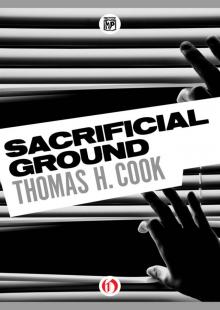 Sacrificial Ground
Sacrificial Ground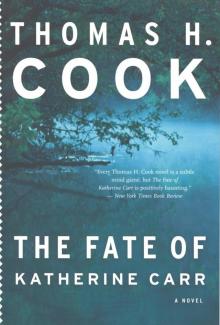 The Fate of Katherine Carr
The Fate of Katherine Carr What's In A Name
What's In A Name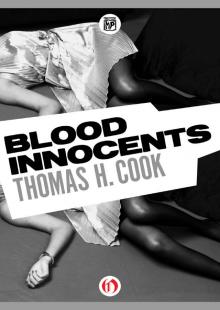 Blood Innocents
Blood Innocents Peril
Peril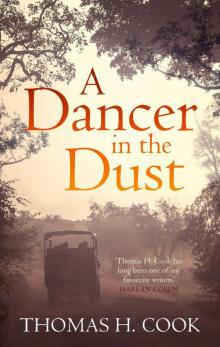 A Dancer In the Dust
A Dancer In the Dust Breakheart Hill
Breakheart Hill The Chatham School Affair
The Chatham School Affair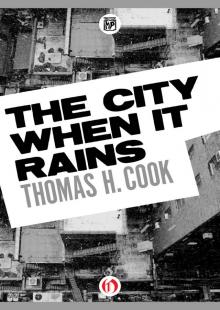 The City When It Rains
The City When It Rains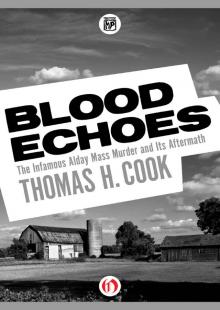 Blood Echoes
Blood Echoes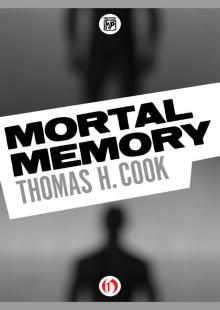 Mortal Memory
Mortal Memory Evidence of Blood
Evidence of Blood Into the Web
Into the Web The Crime of Julian Wells
The Crime of Julian Wells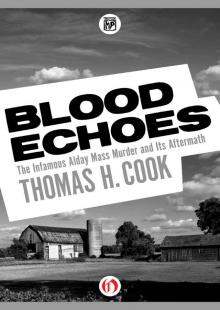 Blood Echoes: The Infamous Alday Mass Murder and Its Aftermath
Blood Echoes: The Infamous Alday Mass Murder and Its Aftermath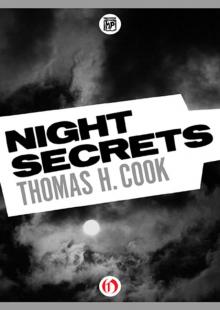 Night Secrets
Night Secrets Places in the Dark
Places in the Dark The Orchids
The Orchids Elena
Elena Streets of Fire
Streets of Fire Instruments of Night
Instruments of Night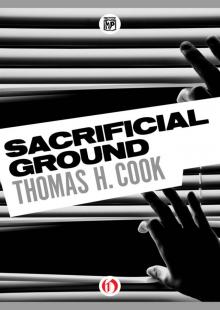 Sacrificial Ground fc-1
Sacrificial Ground fc-1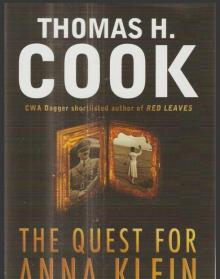 The Quest for Anna Klein
The Quest for Anna Klein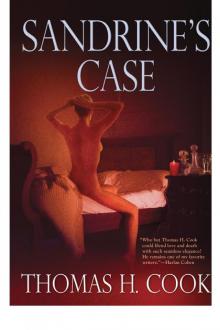 Sandrine's Case
Sandrine's Case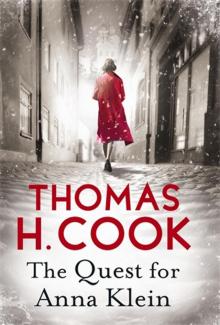 Quest for Anna Klein, The
Quest for Anna Klein, The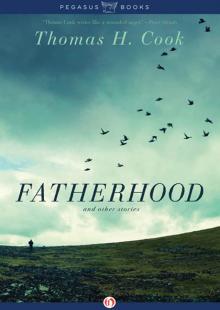 Fatherhood
Fatherhood Flesh and Blood
Flesh and Blood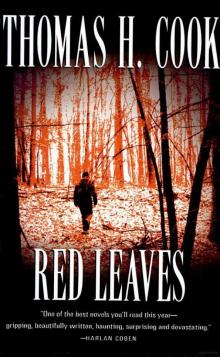 Red Leaves
Red Leaves